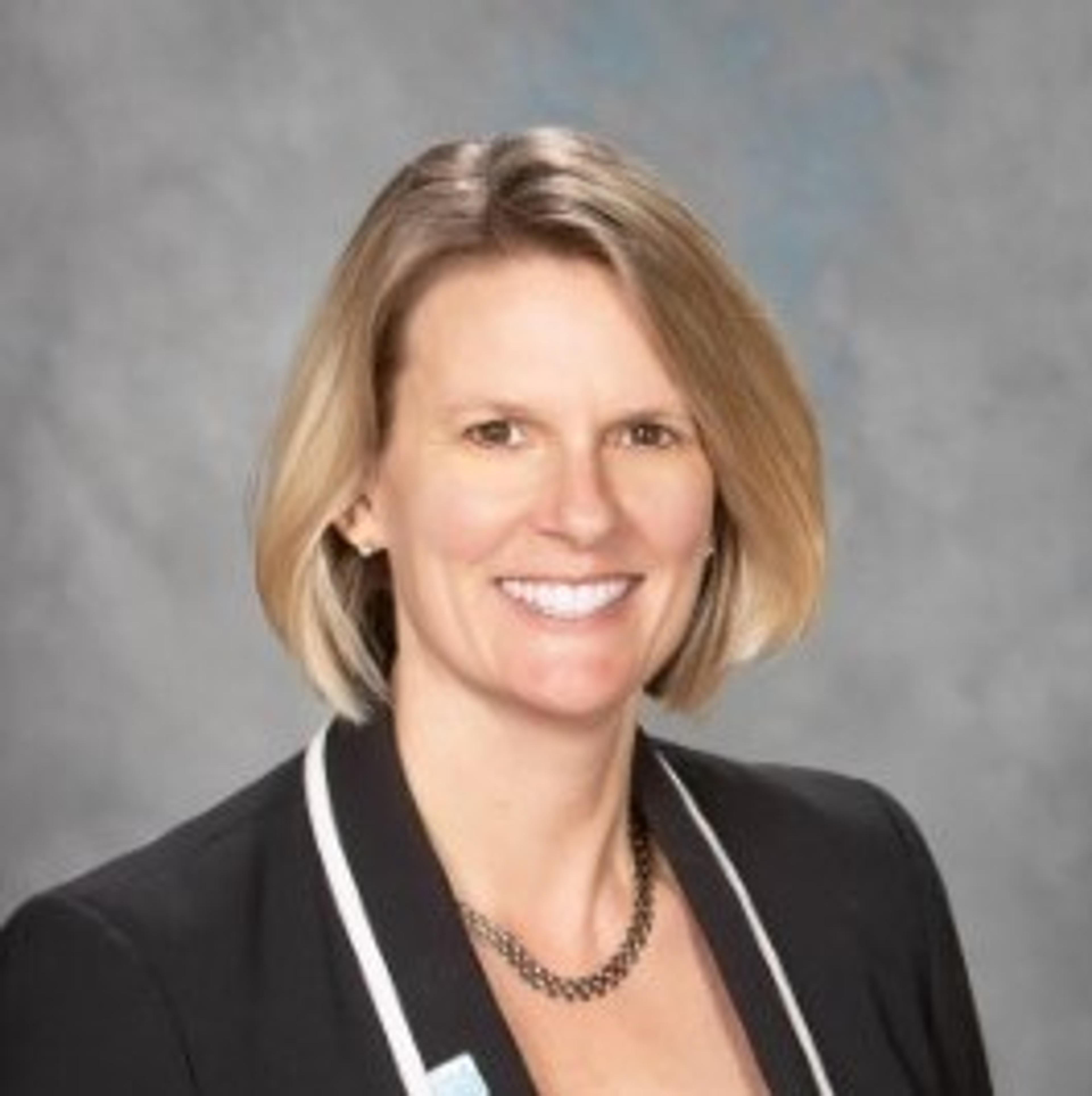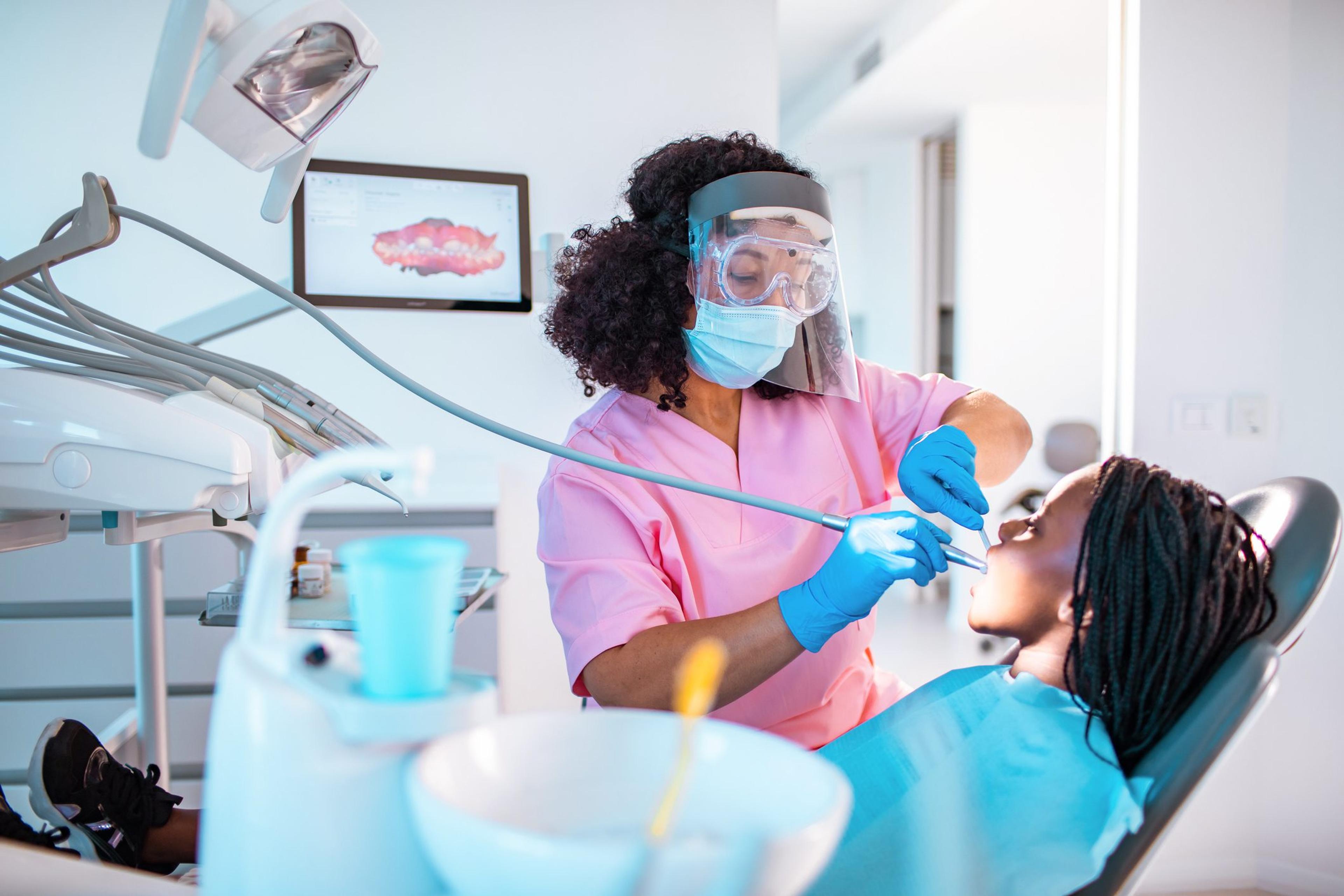Let's Focus Together on Whole Person Health

Dr. Lisa Knowles
| 4 min read
Dr. Lisa Knowles, DDS, is the associate dental consultant for Blue Cross Blue Shield of Michigan. She currently practices in East Lansing, Michigan, and has worked in several professional settings, including a public health clinic, a large DSO, and in private practice. She served on the Michigan Dental Association’s Board of Trustees for five years and recently spoke at the American Dental Association’s annual session on conflict resolution and prioritizing providers’ overall health and well-being. She is married, has two children and enjoys scrumptious food and the great outdoors.

As dentists, we see patients routinely — generally every six months for preventative care and oral exams. That gives us a couple of advantages over some of my physician colleagues: the time we spend with patients and continuity of care. The hygienists in our dental offices spend 45 to 60 minutes with our patients — and they hear a lot. We get updated X-rays of these patients nearly every year. The dentists examine their teeth, their gums, their cheeks, the skin on their faces, get their medical histories, learn about their medications and hear their personal concerns. We get to know them on multiple levels. We sometimes uncover emotional or mental issues that are connected to their physical health and well-being. If a dentist, physician or just about any health care professional is rushed, he or she may not have time to discover important information about a patient. It’s hard to get to a root cause of an illness or understand what’s really going on with a patient if you must quickly change gears to treat the next patient … and the next. That’s why we must all work together to “unpack” our complicated patients. Sometimes they have suitcases so full they are bursting out with information. A whole team of health care professionals, working together to share information about patients, will have more success than a health care practitioner working alone. We need the expertise of primary care providers, specialists, dentists, optometrists and other health care practitioners to gain an accurate picture of the overall health of a patient. And because we all play important roles, we need to do a better job of communicating with one another about what we discover.
A case study
One of my patients was grinding her teeth so much that she basically flattened all her molar teeth. She would wake up with sore jaw muscles. We discussed stress reduction techniques and recommended a bite splint to protect her teeth. She turned down our suggestions for yoga classes, psychotherapy or other nonmedical approaches to dealing with stress, thinking she could handle it on her own. When I suggested she talk with her primary care provider, she followed up and let me know he prescribed her Ativan to take at nighttime. At her next visit, I asked if the medication was helping. She replied, “Sort of.” But then she reported a recent trip to the emergency department for a panic attack. She was spinning in a cycle that was getting worse. This time, after checking her bite splint and examining her teeth, she finally said she would take the free yoga class coupon I had offered. It was a first step. I reinforced with her that we all need support sometimes to help us manage life, and encouraged her to consider making an appointment with a licensed behavioral health provider. It’s not uncommon for patients to experience multiple mental, emotional or physical events before taking steps to change a behavior — or take advice or help — even from health care professionals.
Some examples
Evidence of the correlation between oral and systemic health continue to emerge. As examples, there are links between:
- Periodontal disease and heart disease
- Oral bacteria and Alzheimer’s disease
- Bone loss around teeth and diabetes
The body doesn’t function separately, nor should we, as professionals, function separately when treating the body and the mind. Historically, we’ve divided the body into parts, gained specialty knowledge about each part and diligently focused on our areas of expertise. Unfortunately, this can lead to tunnel vision. Although an in-depth knowledge about individual body parts and systems is crucial, we must also remain cognizant of the greater whole — whole what we sometimes call whole person health — when treating patients. As the dental director of Blue Cross Blue Shield of Michigan, I envision a future where we find new collaborative ways to not only help our patients, but also to help our enterprise work more efficiently and effectively. By being cognizant of early indicators of health conditions, we can save time, health care costs and lives. Dr. Lisa Knowles graduated from Alma College with a bachelor’s degree and then received a degree from the University of Michigan School of Dentistry in 1998. She completed a one-year general practice residency at the Veteran Affairs Medical Center in Ann Arbor. There she learned about integrating oral health and overall health. She currently practices in East Lansing, and joined Blue Cross Blue Shield of Michigan as the dental director in 2019. More from MIBluesPerspectives:
- Keep Your Child’s Eyes and Teeth Healthy this School Year
- Why Missing a Checkup Could Cost You In the Long Run
- Coffee and Anxiety: What You Need to Know
Photo credit: Getty Images





